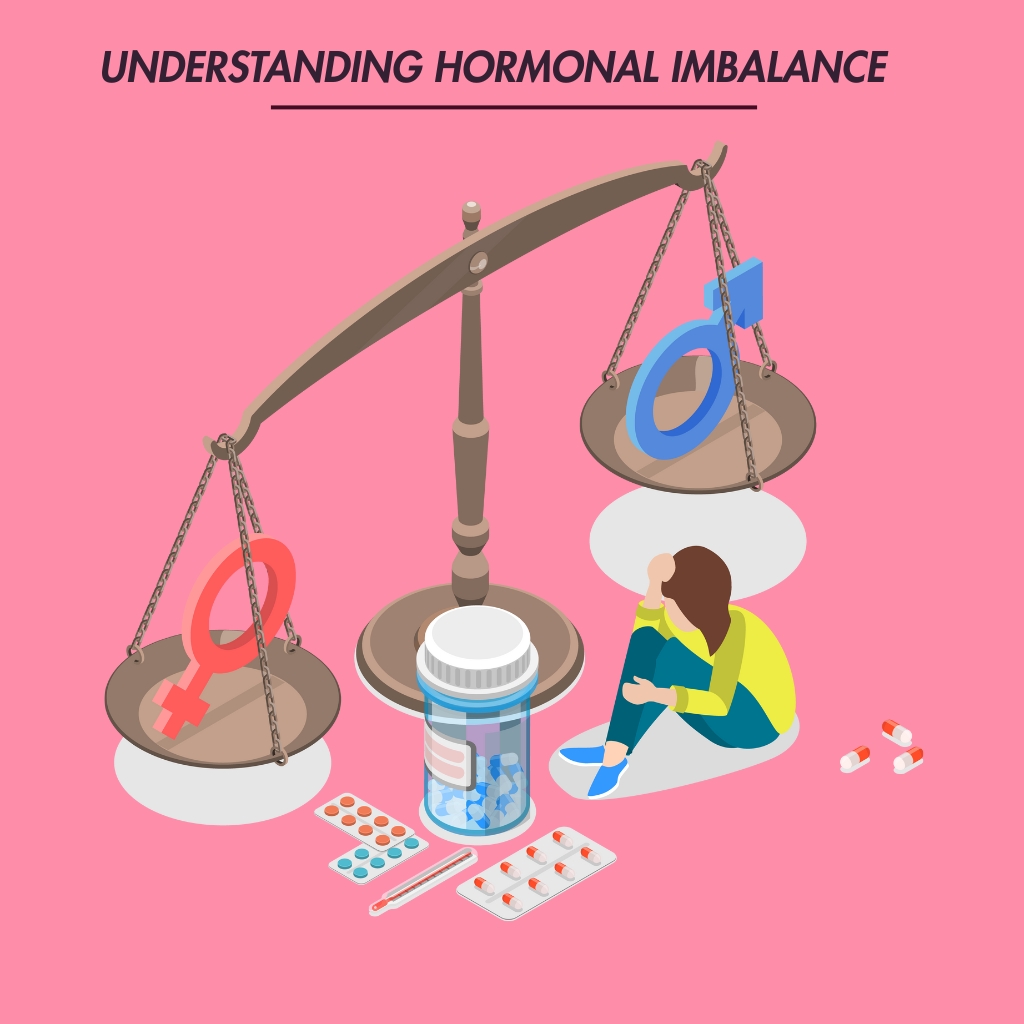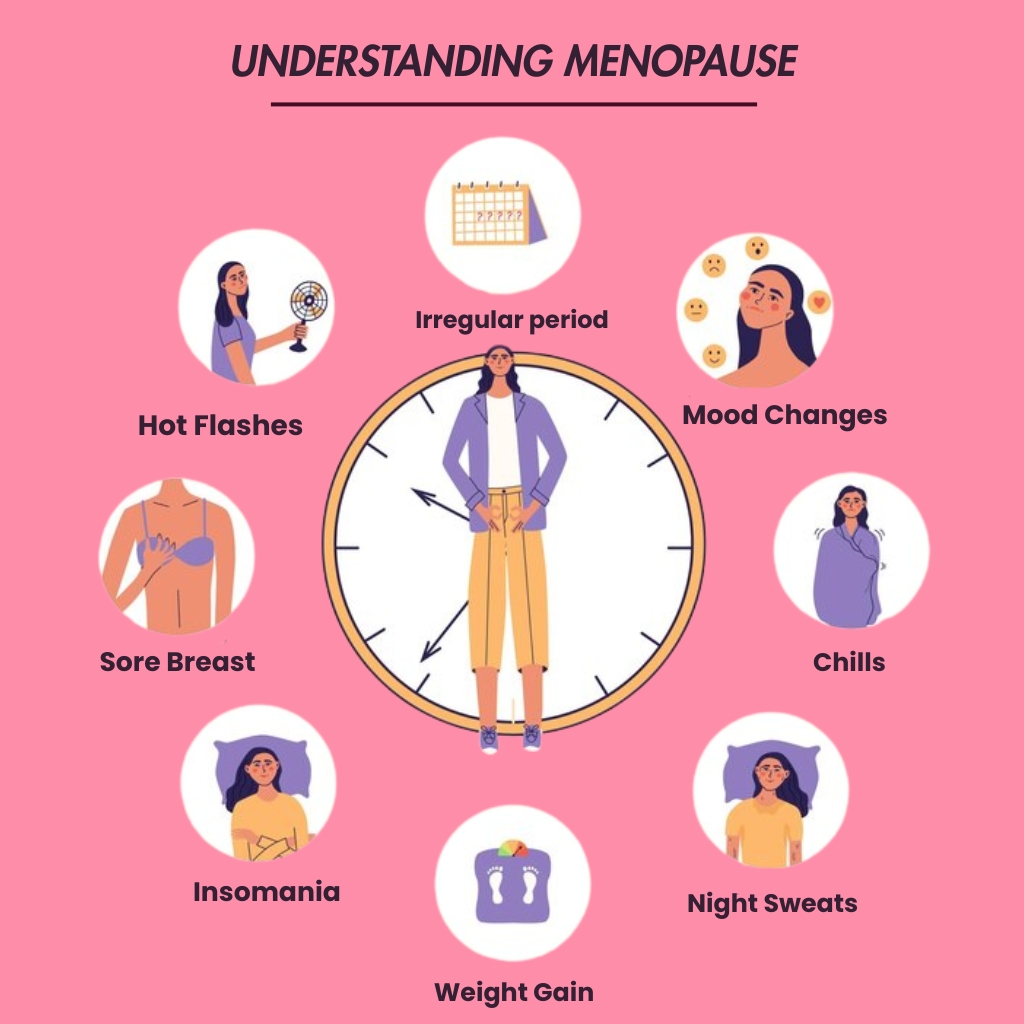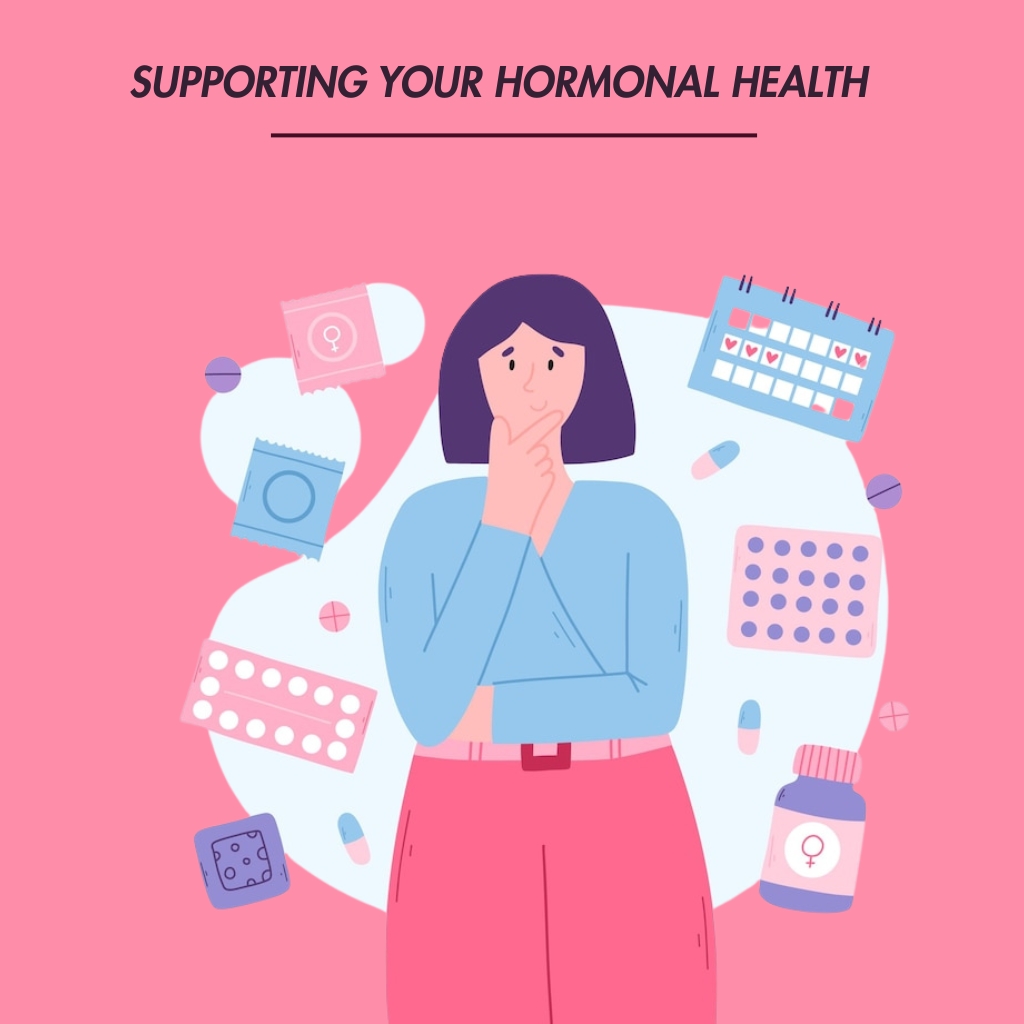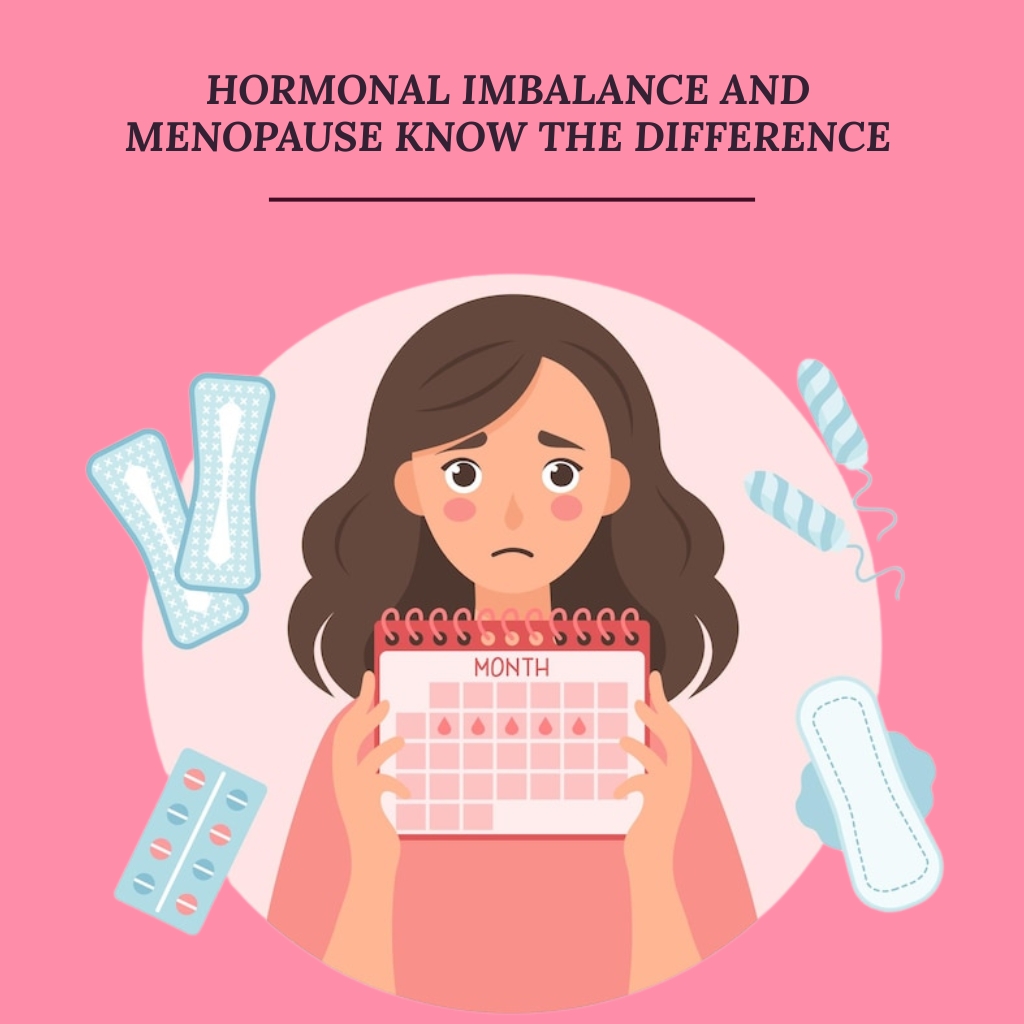Introduction
Many women struggle to understand whether the changes in their body are related to menopause or a hormonal imbalance. The truth is, they can appear similar but mean very different things for your health. Knowing the difference between hormonal imbalance and menopause helps you make informed choices and seek the right care early. In this guide, you’ll learn how to identify symptoms, what causes them, and how to decide when it’s time to speak with a healthcare provider.
If you’ve been noticing shifts in your mood, cycle, or energy levels, or feel unsure if these changes are just part of aging, this information is for you.
What Are Hormones and Why They Matter
Hormones act as messengers in the body, controlling how different systems respond and function. In women, they’re especially important for regulating the menstrual cycle, emotional balance, energy, sleep, and even digestion.
As women age, hormones naturally fluctuate. However, when these changes are too sharp, too early, or too irregular, the body responds in ways that can affect daily life.
Changes in hormones may happen around perimenopause and menopause, but not always. That’s why it’s essential to understand how hormonal imbalance and menopause differ in both cause and experience.
Understanding Hormonal Imbalance

Hormonal imbalance happens when there’s too much or too little of a hormone in the bloodstream. Even a slight shift can disrupt the body’s normal processes.
Causes of a hormonal imbalance may include:
- Thyroid issues
- Polycystic ovary syndrome (PCOS)
- Long-term stress
- Certain medications
- Perimenopause or early menopause
The signs and symptoms of hormonal imbalance are often mistaken for other conditions, which can make diagnosis difficult without proper testing.
Symptoms of hormonal imbalance may include:
- Irregular periods
- Unexplained weight gain or loss
- Sleep problems
- Mood swings
- Skin issues such as acne or dryness
- Reduced sex drive
If several of these apply to you, it’s worth having a discussion with a doctor who can evaluate hormone levels through simple blood tests and clinical history.
Understanding Menopause

Menopause is a natural stage in a woman’s life, typically beginning between ages 45 and 55. It marks the end of menstrual cycles and is confirmed when a woman hasn’t had a period for twelve consecutive months. What many don’t realise is that menopause is not a sudden change. It happens gradually through phases like perimenopause and postmenopause, each bringing its own set of adjustments.
The symptoms of menopause often develop slowly. For some, the early signs include irregular periods or lighter or heavier bleeding. Others might notice night sweats or a change in mood. While these experiences vary, they all result from the body’s reduced production of hormones like estrogen and progesterone.
Common symptoms of menopause may include:
- Hot flashes
- Difficulty sleeping
- Vaginal dryness
- Emotional sensitivity
- Changes in memory or focus
- Less frequent or absent periods
It is important to know that these symptoms are not a sign of illness but a reflection of the body’s transition. However, if symptoms are intense or disrupt daily life, support from a medical professional can help.
In some cases, women go through early menopause, which can occur before the age of 45. This may be triggered by medical treatments, surgery, or certain health conditions. Knowing whether these changes are linked to hormonal imbalance and menopause requires close attention to timing, medical history, and lab work.
Key Differences Between Hormonal Imbalance and Menopause
At first glance, it can be difficult to tell hormonal imbalance and menopause apart. They share overlapping symptoms, which is why many women feel uncertain about what’s happening in their bodies. Understanding the root of each condition is essential, especially when trying to make choices about your health.
One of the clearest differences lies in timing. Menopause tends to appear gradually between ages 45 and 55. In contrast, a hormonal imbalance can happen at any age and is often triggered by external factors such as stress, medications, thyroid disorders, or underlying health issues. While menopause is a natural transition, imbalance is usually a signal that something needs attention.
Another key difference is how symptoms behave over time. Symptoms of menopause are part of a predictable shift. Hormones decline steadily, and the body adjusts over time. With imbalance, symptoms might be erratic. They can appear suddenly and may not follow a consistent pattern.
A few signs that point more toward hormonal imbalance include:
- Mood swings that come and go without clear cause
- Persistent fatigue that doesn’t improve with rest
- Ongoing acne or oily skin
- Sudden changes in weight or appetite
- Trouble sleeping despite feeling exhausted
Meanwhile, signs and symptoms of hormonal imbalance can also include irregular periods, which are common during menopause. The difference often comes down to context. If you’re younger than 45 or symptoms started suddenly, it may not be menopause.
To add clarity, most women find that knowing the difference between hormonal imbalance and menopause is not about memorising every symptom. It’s about recognising patterns, checking what has changed, and speaking to someone who understands these issues well.
At Harley’s Cosmetic and Women’s Clinic, patients often consult Dr. Shilpa to sort through these exact questions. Bringing up how your symptoms have evolved, when they started, and what’s changed in your daily life gives your doctor important clues. It’s one of the most effective ways to get answers early.
Supporting Your Hormonal Health

While medical support plays a central role, many women also ask what they can do in the meantime. Hormones respond not only to internal biology but also to patterns in how we live, eat, sleep, and move. Paying attention to those patterns can ease symptoms and help create better ground for any treatment that follows.
Start by noticing your routine. Are you sleeping enough? Is your energy consistent through the day? Do you feel emotionally steady or more reactive than usual? These are not random experiences. They are signals that your body is adjusting or asking for support.
Here are a few steps that help many women stay grounded when dealing with hormonal imbalance and menopause:
- Stick to a regular sleep schedule that gives you enough rest without relying on stimulants
- Choose balanced meals that include healthy fats, proteins, and fibre-rich foods
- Avoid skipping meals, as blood sugar drops can trigger hormonal shifts
- Set time aside for light activity, such as walking, stretching or swimming
- Track symptoms in a notebook or app, especially if you plan to visit a specialist
- Keep stress in check through breathing exercises, journaling or short breaks throughout the day
These actions may seem small, but they create stability over time. Consistency in daily choices often leads to clearer patterns in symptoms, which can help your doctor interpret results more accurately.
Although these strategies may not replace medical treatment, they are often recommended by experts, including Dr. Shilpa at Harley’s Cosmetic and Women’s Clinic, as part of a broader approach. When habits are aligned with what your body needs, even minor shifts can lead to more balanced outcomes.
Frequently Asked Questions
Q1. How can I tell the difference between menopause and hormonal imbalance?
Answer: Menopause is age-related and marks the end of periods, while hormonal imbalance can occur at any age due to various health factors. Blood tests and a clinical review help confirm the cause.
Q2. What is the usual age for menopause to start?
Answer: Most women enter menopause between 45 and 55, though symptoms can begin earlier during perimenopause.
Q3. Can someone experience hormonal imbalance in their 30s?
Answer: Yes, conditions like PCOS, thyroid issues, or chronic stress can lead to hormone disruption well before menopause.
Q4. Are symptoms like fatigue and mood changes linked to both conditions?
Answer: Yes, both menopause and hormonal imbalance can cause fatigue, mood swings, and sleep issues, which is why proper diagnosis is important.
Q5. Can stress cause hormonal imbalance?
Answer: Absolutely. Chronic stress can elevate cortisol and affect reproductive hormones, contributing to imbalance.
Q6. Is every woman’s menopause experience the same?
Answer: No. Some have mild symptoms, while others may deal with stronger physical or emotional changes. Family history and overall health play a role.
Conclusion
Navigating physical and emotional changes is hard enough without the added confusion of not knowing what’s behind them. Understanding the difference between menopause and hormonal imbalance helps you choose the right course of action. If you’re noticing changes in your cycle, mood, or energy, it’s worth speaking with a professional. Dr. Shilpa and her team at Harley’s Cosmetic and Women’s Clinic offer expert care tailored to your needs.
Being informed is the first step to feeling better.


